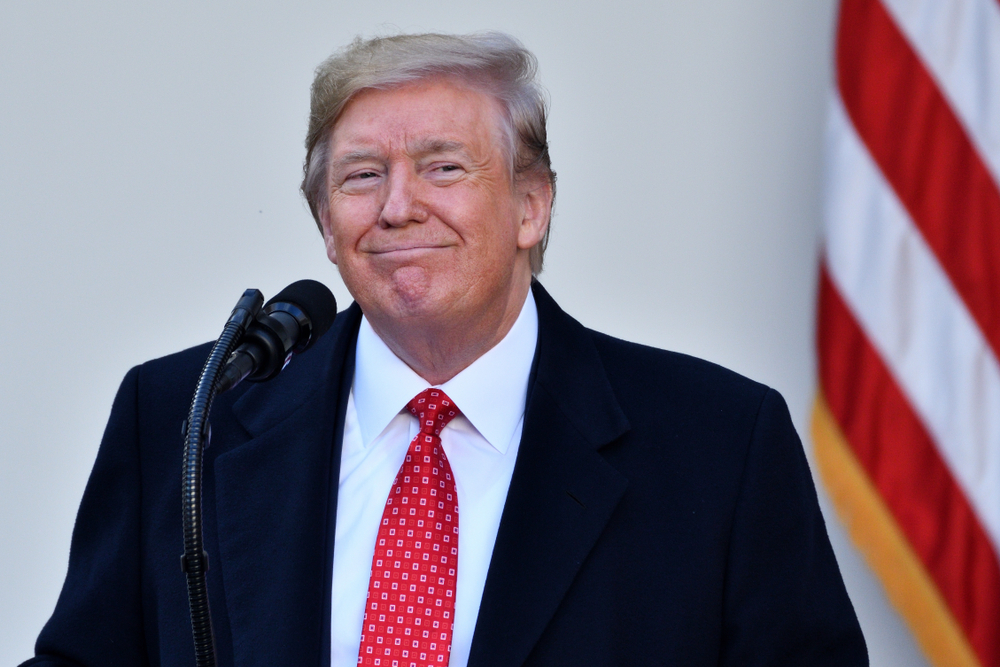President Trump is turning up the heat on Federal Reserve Chair Jerome Powell, calling for his removal after Powell warned that Trump’s proposed tariffs could raise inflation and slow the economy. The clash exposes growing friction between Trump’s America First economic strategy and the Federal Reserve’s independent authority over monetary policy.
Trump Slams Powell Over Tariffs and Rates
The feud reignited this week when Powell voiced concern that tariffs could fuel inflation and stall growth, prompting Trump to fire back on social media: “His termination cannot come soon enough.” The president accuses Powell of keeping rates too high and failing to understand the current economy.
Inflation has dropped sharply from a 9.1% peak in 2022 to 2.4%, but Trump argues the Fed is still dragging its feet on interest rates, harming growth and job creation. He’s repeatedly accused Powell of being “TOO LATE AND WRONG” and says that if he’s reelected, “he’ll be out of there real fast, believe me.”
Fed Independence Faces Political Pressure
While Trump may be frustrated, removing Powell isn’t that simple. The Federal Reserve Act protects the central bank’s independence by limiting presidential authority to remove a Fed chair only “for cause.” That generally means legal or ethical misconduct—not policy disagreements.
Powell, originally appointed by Trump in 2017 and reappointed by Biden in 2022, made it clear in past statements: “Our independence is a matter of law.” When asked whether he would resign if Trump demanded it, Powell replied: “No.”
A pending Supreme Court case could clarify presidential power over independent agencies, but it remains uncertain whether it will impact the Fed’s unique legal status.
Trump just casually threatened the Fed Chair—on live TV.
REPORTER: Powell says he won’t step down, even if you ask.
TRUMP: He’ll be gone. If I want him out, he’s out. I’m not happy, and when I’m not happy—people disappear. Fast. pic.twitter.com/PniCQeCUrO— Shazi (@ShaziGoalie) April 17, 2025
Inflation, Tariffs, and Election-Year Uncertainty
At the heart of this standoff is a battle between Trump’s pro-tariff, pro-growth strategy and the Fed’s cautious approach to interest rates and inflation. Powell fears that if Trump imposes broad tariffs, it could trigger stagflation—a dangerous mix of high inflation and economic slowdown.
TRUMP ON POWELL:
– HE’S PLAYING POLITICS & TRYING TO BE CUTE
– EUROPE IS CUTTING RATES SO WHY AREN’T WE
– I AM NOT HAPPY WITH POWELL & HE WILL LEAVE IF I ASK HIM TO
Trump wants rate cuts immediately…but Powell thinks the tariff inflation is too much of a concern to cut. pic.twitter.com/FK6z4rDTqi
— amit (@amitisinvesting) April 17, 2025
Such a scenario would force the Fed to raise rates, slowing the economy just as voters head to the polls. Goldman Sachs and other banks have already raised recession risks, and Yale estimates tariff-related inflation could cost families up to $4,900 per year.
Consumer confidence is shaky, and Wall Street is watching closely. With Powell’s term set to run through May 2026, and Trump leading in the polls, the future of the Fed’s independence could hang in the balance.
Sources:
- Trump suggests he can remove Fed Chair Powell and says he’s ‘not happy’ with him over interest rates

